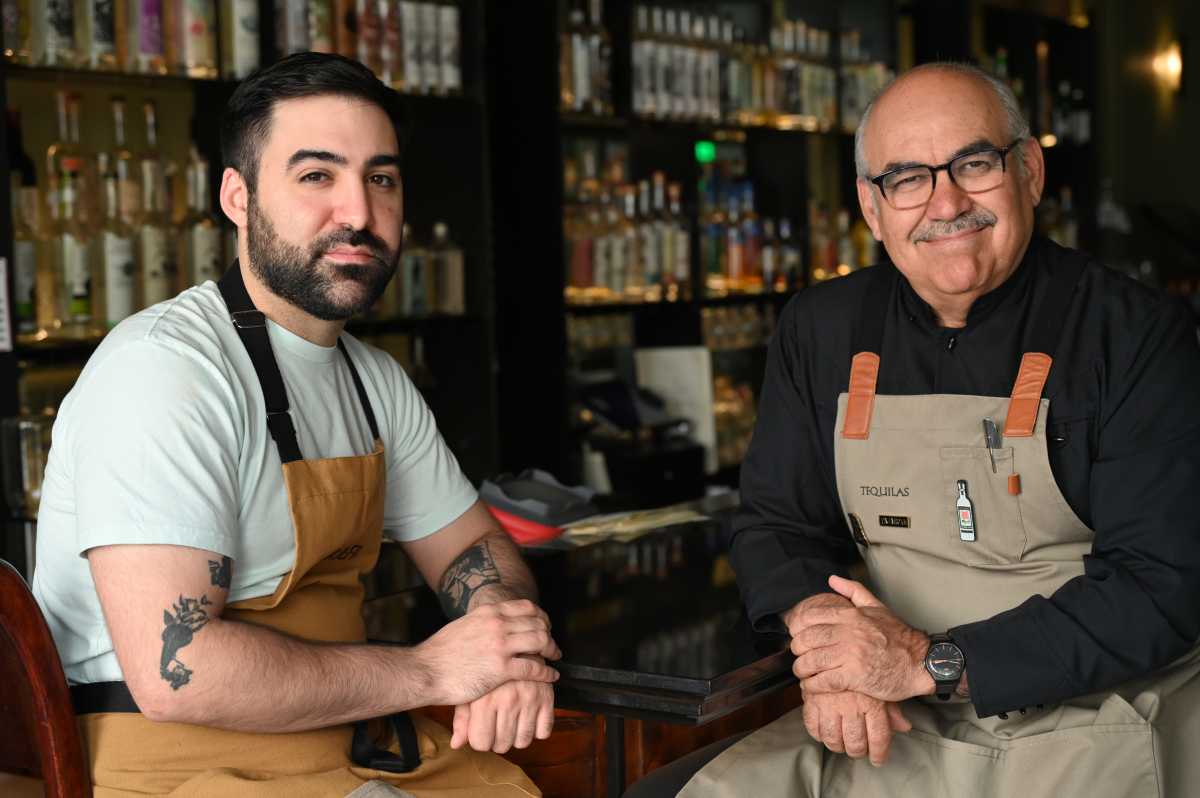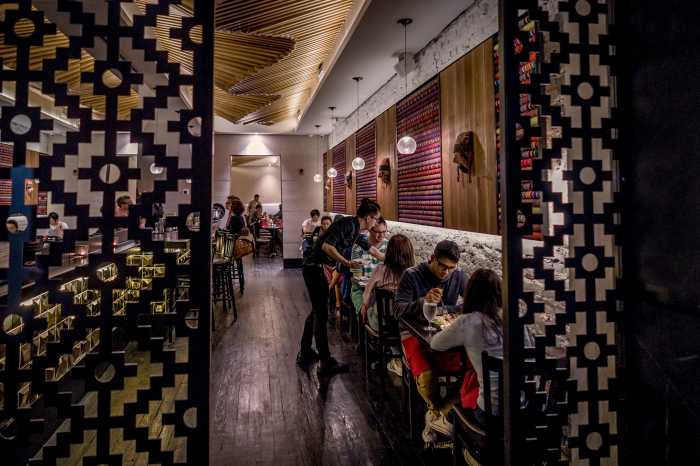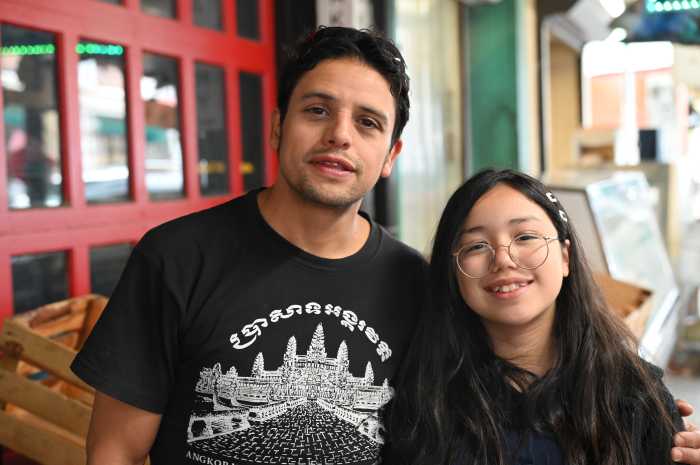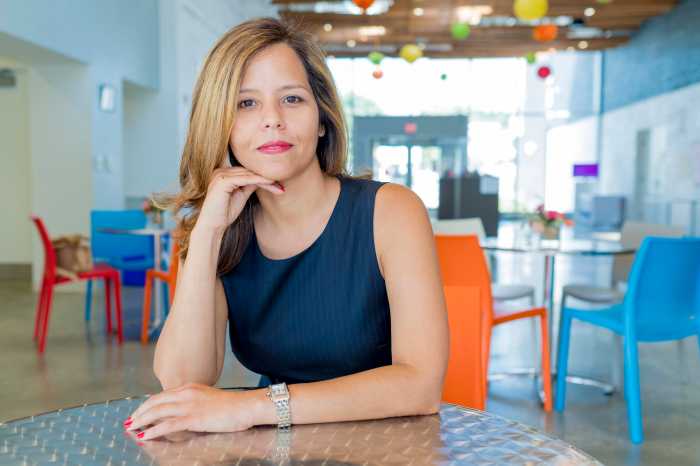Metro Philadelphia and 2PuntosLocalNews are collaborating to produce a series highlighting second- and third-generation Latines in Philadelphia.
Second and third generation immigrants often represent a fresher, more creative perspective. It’s no longer about the lack of resources faced by the first generation, but rather how to innovate by blending the traditional with the contemporary.
But four decades ago, the story was very different. First-generation migrants had to dig deep to succeed — often with limited resources — to pave the way for the second generation to fulfill their dreams.
‘It was a completely different landscape’
David Suro migrated from Mexico to Philadelphia in the late 1980s. With hard work, no business background, and almost no money, they raised enough to buy a restaurant in Center City now known as Tequilas Casa Mexicana. Suro did what few had achieved at the time, introducing Mexican food as fine dining in the heart of the city.
Back then, sourcing what’s needed to run a restaurant was a major challenge, starting with the most basic thing: ingredients.
In Philadelphia, he didn’t have access to the most basic staples in Mexican cuisine. There were no avocados for guacamole. There was no good cilantro; not even epazote. So Suro traveled to Chicago to get the freshest ingredients to offer the best of Mexican cuisine in Philadelphia.
“For me to see the type of Mexican food that we have in the city right now, I feel so emotional,” he said.
The love of sharing Mexican food runs deep in the Suro family. David Suro’s son, Dan, is the owner of La Jefa, a coffee and cocktail bar that combines the flavors of Guadalajara and Philadelphia.
Born in Philadelphia, Dan Suro honored his roots by naming his restaurant La Jefa (“the boss” in Spanish), in honor of his late mother. Representing the second generation of Mexican entrepreneurs in the city, his menu mixes in a more creative, experimental, and even avant-garde vision.
“I think everything about La Jefa, I’ve learned through my dad,” said Dan.
For his father, there’s never been a better time for the second and third generations of Latine entrepreneurs.
“It is a very good time for minds like theirs,” David Suro said. “For us [the first generation], it was like you don’t have a choice.”
Community comes first, then business
Amaryllis “Amy” Rivera Nassar, owner of Amy Pastelillos in Fishtown, was born in North Philadelphia to Puerto Rican parents. She grew up watching her pastor parents giving even what they didn’t have to the Latine community.
While her father gave the sermon, her mother showed love to others through food. But in 2016, Rivera Nassar’s life took a turn after she lost her mother.
Cooking became her way of coping with grief while serving her Latine community. It was the only way Rivera Nassar found to feel close to her mother and keep her memory alive.
“She’s the inspiration and the reason for all of this,” Rivera Nassar said.
At Amy Pastelillos, neighbors, local chefs, and even unhoused people stop by for food and water, filling the corner space with a sense of community.
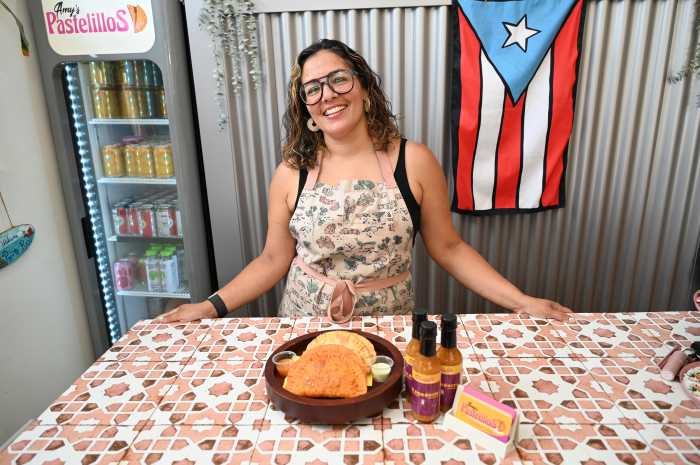
Rivera Nassar’s daughters, who are third-generation Latinas, have also inherited their mother’s entrepreneurial talent. Although one is 9 and the other is 7, they are already interested in learning how to run a business and make money on their own.
“She’s so proud,” Rivera Nassar said of her eldest daughter. “She’s like, ‘Wow, it’s really cool. You have a business, Mom!’”
From El Balconcito to Vista Perú: A 100% family business
Patricia Toro migrated from Peru to Philadelphia more than 30 years ago. The eldest of three siblings, she was followed by her mother and brothers, who sold what little they had in Peru to start a new life in a city where they knew no one.
Yet in 2005, the Toro family opened El Balconcito I, combining Peruvian and Portuguese cuisine. Three years later, they opened El Balconcito II.
While Toro and one of her brothers worked as servers, their mother and stepfather were in charge of the kitchen. For Toro’s oldest son, Matthew Alegría, El Balconcito became his second home. He spent most of his time playing in the restaurant’s basement while his mother worked—a reality for many working Latine mothers.
Now as a second-generation Peruvian-American, the 18-year-old Alegría proudly works as a waiter in the same restaurant that saw him grow up.
“El Balconcito raised me,” Alegría said. “It taught me many things, and I have to pay back El Balconcito for what it has given me.”
Known in Northeast Philly for El Balconcito I and II, the Toro family expanded to Old City in 2018, opening Vista Perú to compete on equal footing with other non-Latine restaurants.
“I was the only Latina woman showing my face on this block,” Toro said. “I thought they would never respect me. But now the neighbors know us, they know who we are, and they even recommend us.”
Metro Philadelphia is one of more than 25 news organizations powering the Philadelphia Journalism Collaborative. We do solutions reporting on things that affect daily life in our city where the problem and symptoms are obvious, but what’s driving them isn’t. Follow us at @PHLJournoCollab
Para los dueños de negocios latinos en Filadelfia, transmitir la cultura y el negocio van de la mano
Hoy en día, hay casi 12,000 negocios de propietarios latinos en la ciudad, pero no siempre fue así. El éxito actual es el resultado de generaciones de trabajo duro.
By Némesis Mora, 2PuntosLocalNews
Metro Philadelphia y 2PuntosLocalNews están colaborando para producir una serie que destaca a latines de segunda y tercera generación en Filadelfia.
Los inmigrantes de segunda y tercera generación suelen representar una perspectiva más fresca y creativa. Ya no se trata de la falta de recursos a la que se enfrentó la primera generación, sino de cómo innovar mezclando lo tradicional con lo contemporáneo.
Pero hace cuatro décadas, la historia era muy distinta. Los migrantes de primera generación tuvieron que esforzarse al máximo para salir adelante —a menudo con recursos limitados— y así abrir el camino para que la segunda generación pudiera cumplir sus sueños.
‘Era un panorama completamente diferente’
David Suro emigró de México a Filadelfia a finales de los años 80. Con mucho trabajo, sin experiencia empresarial y casi sin dinero, logró reunir lo suficiente para comprar un restaurante en Center City, hoy conocido como Tequilas Casa Mexicana. Suro hizo lo que pocos habían conseguido en ese entonces: introducir la comida mexicana como alta cocina en el corazón de la ciudad.
En aquel tiempo, conseguir lo necesario para manejar un restaurante era un gran desafío, empezando por lo más básico: los ingredientes.
En Filadelfia no tenía acceso a los productos esenciales de la cocina mexicana. No había aguacates para el guacamole. No había buen cilantro, ni siquiera epazote. Así que Suro viajaba a Chicago para conseguir los ingredientes más frescos y poder ofrecer lo mejor de la gastronomía mexicana en Filadelfia.
“Para mí, ver el tipo de comida mexicana que tenemos en la ciudad hoy me emociona muchísimo”, dijo.
El amor por compartir la comida mexicana corre profundo en la familia Suro. El hijo de David, Dan, es dueño de La Jefa, un café-bar de cócteles que combina los sabores de Guadalajara y Filadelfia.
Nacido en Filadelfia, Dan Suro honró sus raíces al nombrar su restaurante La Jefa (en honor a su madre fallecida). Representando a la segunda generación de empresarios mexicanos en la ciudad, su menú mezcla una visión más creativa, experimental e incluso vanguardista.
“Creo que todo lo de La Jefa lo aprendí de mi papá”, dijo Dan.
Para su padre, nunca ha habido un mejor momento para los empresarios latines de segunda y tercera generación.
“Es un muy buen momento para mentes como las de ellos”, dijo David Suro. “Para nosotros [la primera generación], era como que no tenías opción”.
Primero la comunidad, luego el negocio
Amaryllis “Amy” Rivera Nassar, dueña de Amy Pastelillos en Fishtown, nació en el norte de Filadelfia, hija de padres puertorriqueños. Creció viendo a sus padres pastores dar incluso lo que no tenían para apoyar a la comunidad latina.
Mientras su padre predicaba, su madre mostraba amor a los demás a través de la comida. Pero en 2016, la vida de Rivera Nassar cambió tras la pérdida de su madre.
Cocinar se convirtió en su manera de sobrellevar el duelo y, al mismo tiempo, servir a su comunidad latina. Fue la única forma que encontró para sentirse cerca de su madre y mantener viva su memoria.
“Ella es la inspiración y la razón de todo esto”, dijo Rivera Nassar.
En Amy Pastelillos, vecinos, chefs locales e incluso personas sin hogar se acercan por comida y agua, llenando el espacio de un sentido de comunidad.
Las hijas de Rivera Nassar, que son latinas de tercera generación, también han heredado el talento emprendedor de su madre. Aunque una tiene 9 años y la otra 7, ya muestran interés en aprender cómo manejar un negocio y generar dinero por sí mismas.
“Ella está muy orgullosa”, dijo Rivera Nassar sobre su hija mayor. “Me dice: ‘Wow, qué chévere. ¡Tienes un negocio, mamá!’”
De El Balconcito a Vista Perú: un negocio 100% familiar
Patricia Toro emigró de Perú a Filadelfia hace más de 30 años. La mayor de tres hermanos, fue seguida por su madre y sus hermanos, quienes vendieron lo poco que tenían en Perú para empezar una nueva vida en una ciudad donde no conocían a nadie.
En 2005, la familia Toro abrió El Balconcito I, combinando cocina peruana y portuguesa. Tres años después, abrieron El Balconcito II.
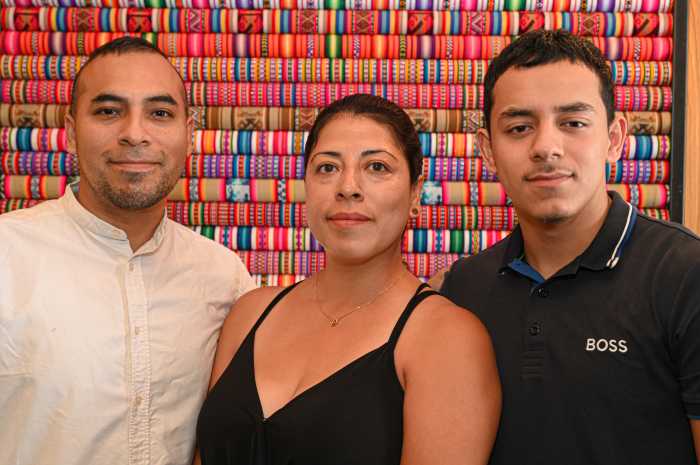
Mientras Toro y uno de sus hermanos trabajaban como meseros, su madre y su padrastro estaban a cargo de la cocina. Para el hijo mayor de Toro, Matthew Alegría, El Balconcito se convirtió en su segundo hogar. Pasaba la mayor parte del tiempo jugando en el sótano del restaurante mientras su madre trabajaba —una realidad común para muchas madres latinas trabajadoras.
Hoy, como peruano-estadounidense de segunda generación, el joven de 18 años trabaja con orgullo como mesero en el mismo restaurante donde creció.
“El Balconcito me crió”, dijo Alegría. “Me enseñó muchas cosas, y tengo que devolverle a El Balconcito todo lo que me ha dado”.
Conocida en el noreste de Filadelfia por El Balconcito I y II, la familia Toro se expandió a Old City en 2018, abriendo Vista Perú para competir en igualdad de condiciones con otros restaurantes no latinos.
“Yo era la única mujer latina mostrando mi cara en esta cuadra”, dijo Toro. “Pensé que nunca me iban a respetar. Pero ahora los vecinos nos conocen, saben quiénes somos e incluso nos recomiendan”.
Metro Philadelphia es uno de más de 25 medios que conforman la Philadelphia Journalism Collaborative. Hacemos periodismo de soluciones sobre asuntos que afectan la vida diaria en nuestra ciudad, donde el problema y sus síntomas son obvios, pero las causas no tanto. Síguenos en @PHLJournoCollab.



